India's Consumption Growth Shows 'Green Shoots': FICCI President
By Rediff Money Desk, New Delhi Dec 12, 2024 16:45
FICCI President Harsha V Agarwal sees 'green shoots' in consumption growth as food inflation eases. He expects a revival in consumption aided by good crop and government spending.
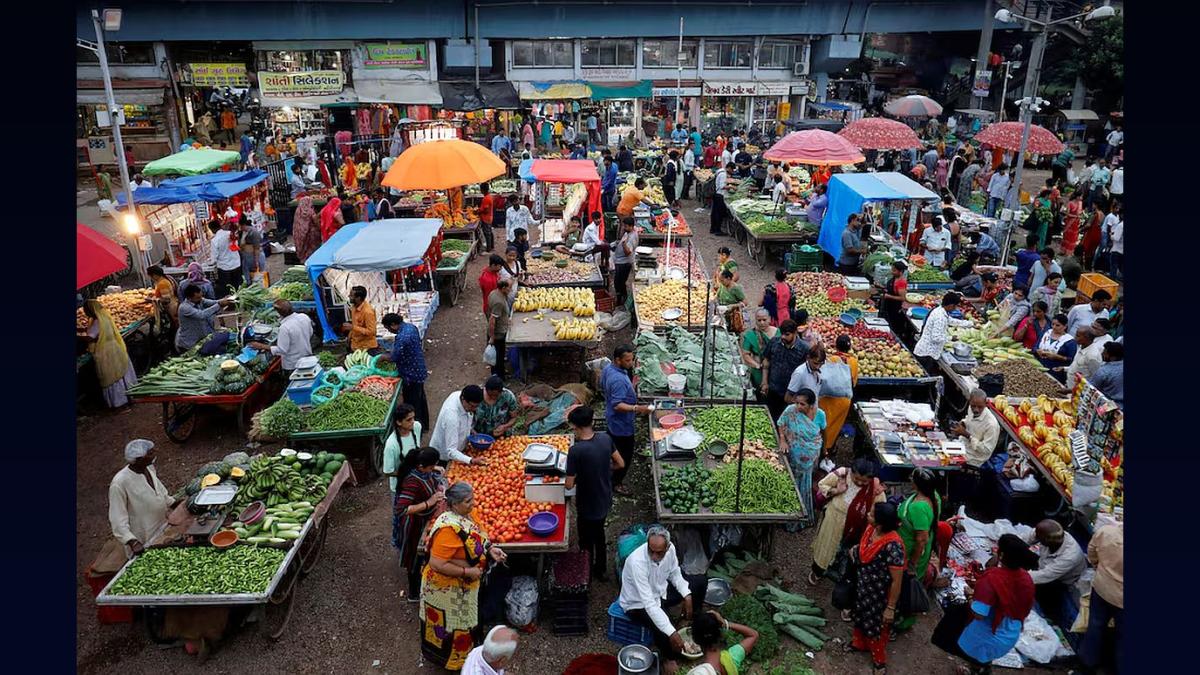
Photograph: Amit Dave/Reuters
New Delhi, Dec 12 (PTI) "Green shoots" are visible on the consumption front as food inflation has started receding, newly appointed FICCI President Harsha V Agarwal said.
Food inflation is expected to come down to its normal level in the next two quarters, Agarwal said, adding that he is hopeful for a revival in consumption growth, aided by a good crop and increased spending by the government on the big-ticket infra projects and rural schemes in the December quarter.
Government spending in the right areas -- like increase in capex and ramping up infrastructure, rather than focusing on revenue expenditure -- is helping the overall economy, he said.
"We are seeing some green shoots where we believe food inflation is coming down... it has to come back to normal. It might take maybe one quarter or so. But we are seeing situations where it is improving, and hence we are hopeful that consumption should increase," Agarwal told PTI.
Government spending in the September quarter was low due to the general elections in the June quarter. However, it increased in the third quarter and is expected to continue in the fourth quarter as well, he said.
"Going forward, we see that increasing in Q3 and substantially in Q4. So cumulatively, with all these things, we are hopeful that the consumption should improve going from here," he added.
The government is focused a lot on the rural economy, which has done well in the second quarter.
"What we hear is the kharif production is also going to be good this year. So from that perspective, overall, we are quite optimistic from the rural front. And from that is where you know the consumption also is coming and it should increase," said Agarwal.
Food inflation in India has been high in recent months, driven by rising prices of vegetables, fruits, oils, and fats. It has slowed down the consumption in urban areas, impacting purchase from the middle class.
"The government has been doing those kind of tax reforms as and where needed" to boost the consumption, Agarwal said. However, he added, "maybe the salary has not gone up to the extent... that is why they are feeling the pinch."
With cooling of inflation and increase in private investments, demand of skilled jobs will increase, and overall things will become better, he said.
According to the latest Consumer Price Index (CPI) data released by the National Statistics Office (NSO) on Thursday, inflation in the food basket reduced to 9.04 per cent in November compared to 10.87 per cent in October.
Last week, while unveiling the bi-monthly monetary policy last week, former Reserve Bank of India Governor Shaktikanta Das said lingering food price pressures are likely to keep headline inflation elevated in the December quarter.
Goenka, who is also Vice-Chairman & Managing Director of FMCG major Emami, said two segments -- rural and premiuim products -- are doing "much better".
"The challenge is more in the area of the lower middle class, and middle class consumers, where the real hit is. And since the discretionary spend as a percentage is anyway, lower, any hit on the inflation has a direct impact," Agarwal said.
However, he was "very hopeful, once the inflation is under control, it should improve and things will be much better".
Over the cement sector, which faced a decline in price in last two quarters YoY, Agarwal said, "their prices might be declining, but still, all the cement companies are making good profit."
He further added it "may be because in the industry now, consolidation is happening. Some of the larger players are fighting for the market share, etc."
Agarwal said government programmes, such as the Production Linked Incentive (PLI) scheme, have made a big difference in some key strategic sectors such as electronic, manufacturing of mobile phones, active pharmaceutical ingredients, etc.
"Going forward, what is important is India should not become like an assembly line... like in electronics. How do we become self-resilient, even in terms of the components required for making electronics? So that may be another key focus area where the government can extend its PLI," he added.
Food inflation is expected to come down to its normal level in the next two quarters, Agarwal said, adding that he is hopeful for a revival in consumption growth, aided by a good crop and increased spending by the government on the big-ticket infra projects and rural schemes in the December quarter.
Government spending in the right areas -- like increase in capex and ramping up infrastructure, rather than focusing on revenue expenditure -- is helping the overall economy, he said.
"We are seeing some green shoots where we believe food inflation is coming down... it has to come back to normal. It might take maybe one quarter or so. But we are seeing situations where it is improving, and hence we are hopeful that consumption should increase," Agarwal told PTI.
Government spending in the September quarter was low due to the general elections in the June quarter. However, it increased in the third quarter and is expected to continue in the fourth quarter as well, he said.
"Going forward, we see that increasing in Q3 and substantially in Q4. So cumulatively, with all these things, we are hopeful that the consumption should improve going from here," he added.
The government is focused a lot on the rural economy, which has done well in the second quarter.
"What we hear is the kharif production is also going to be good this year. So from that perspective, overall, we are quite optimistic from the rural front. And from that is where you know the consumption also is coming and it should increase," said Agarwal.
Food inflation in India has been high in recent months, driven by rising prices of vegetables, fruits, oils, and fats. It has slowed down the consumption in urban areas, impacting purchase from the middle class.
"The government has been doing those kind of tax reforms as and where needed" to boost the consumption, Agarwal said. However, he added, "maybe the salary has not gone up to the extent... that is why they are feeling the pinch."
With cooling of inflation and increase in private investments, demand of skilled jobs will increase, and overall things will become better, he said.
According to the latest Consumer Price Index (CPI) data released by the National Statistics Office (NSO) on Thursday, inflation in the food basket reduced to 9.04 per cent in November compared to 10.87 per cent in October.
Last week, while unveiling the bi-monthly monetary policy last week, former Reserve Bank of India Governor Shaktikanta Das said lingering food price pressures are likely to keep headline inflation elevated in the December quarter.
Goenka, who is also Vice-Chairman & Managing Director of FMCG major Emami, said two segments -- rural and premiuim products -- are doing "much better".
"The challenge is more in the area of the lower middle class, and middle class consumers, where the real hit is. And since the discretionary spend as a percentage is anyway, lower, any hit on the inflation has a direct impact," Agarwal said.
However, he was "very hopeful, once the inflation is under control, it should improve and things will be much better".
Over the cement sector, which faced a decline in price in last two quarters YoY, Agarwal said, "their prices might be declining, but still, all the cement companies are making good profit."
He further added it "may be because in the industry now, consolidation is happening. Some of the larger players are fighting for the market share, etc."
Agarwal said government programmes, such as the Production Linked Incentive (PLI) scheme, have made a big difference in some key strategic sectors such as electronic, manufacturing of mobile phones, active pharmaceutical ingredients, etc.
"Going forward, what is important is India should not become like an assembly line... like in electronics. How do we become self-resilient, even in terms of the components required for making electronics? So that may be another key focus area where the government can extend its PLI," he added.
Source: PTI
DISCLAIMER - This article is from a syndicated feed. The original source is responsible for accuracy, views & content ownership. Views expressed may not reflect those of rediff.com India Limited.
You May Like To Read
TODAY'S MOST TRADED COMPANIES
- Company Name
- Price
- Volume
- Vodafone Idea L
- 7.99 (+ 1.52)
- 58018780
- Mishtann Foods L
- 9.17 ( -5.17)
- 27555831
- Shree Securities
- 0.42 ( -6.67)
- 27309223
- AvanceTechnologies
- 0.90 ( -4.26)
- 25537567
- Rajnish Wellness
- 1.69 ( -2.87)
- 19267607
MORE NEWS
Dak Sewa is Jan Sewa: India Post to Go Digital,...
India Post is undergoing a digital transformation to become a leading logistics...
E-commerce Safety Pledge: Protecting Online...
Major e-commerce platforms in India commit to a Safety Pledge on Dec 24, aiming to...

Ira Bindra Named Group President of Reliance...
Mukesh Ambani appoints Ira Bindra as Group President for human resources at Reliance...




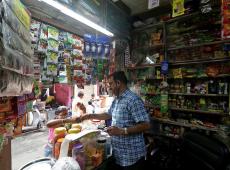
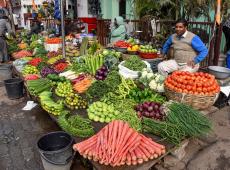
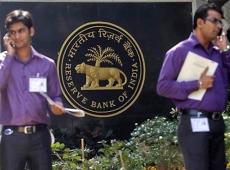
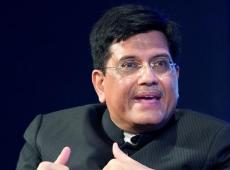
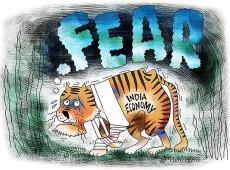
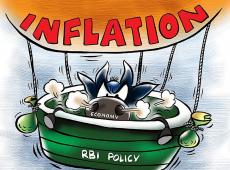
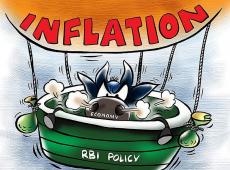

 © 2024 Rediff.com India Limited. All rights reserved.
© 2024 Rediff.com India Limited. All rights reserved.